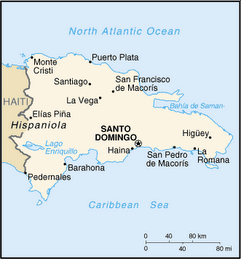These past few days there have been several news reports of children being stolen from hospitals in Haiti. Many "tent" hospitals have hired guards to keep track of the children under their care. A horrible circumstance in any situation, it is especially tragic in Haiti where the system of "restavek" is accepted and has been entrenched in the society for many years.
What is "restavek"? Basically, it is child slavery. Poor children are given away or sold to other families with the hope that they will be taken care of and have enough to eat. Sometimes the child goes to another family member, but usually is given away in anonymity and never heard from again. Once at their new home, these children lose all contact with their blood families, and like slaves of the past are sometimes given new names for the sake of convenience. Some are not even given names, but are simply called "boy" or "girl".
This practice first started after the emacipation in 1804 and initially was only used among the upper class who wanted a young child to help with kitchen and yard work. With time, as the practice became more common, families with less economic standing began acquiring restaveks as a status symbol.
I read a book by Jean Robert Cadet in which he describes his life as a restavek. He slept under a kitchen table, was given food in a bowl and made to eat like a dog, was forbidden to smile, laugh or speak unless spoken to, and was also subjected to numerous beatings and sexual abuse. One common punishment described by many restaveks is being made to kneel on cheese graters covered with salt while holding mangoes in their hands with their arms straight up over their head. If the owner was too lazy to supervise this punishment, they simply hit you over the head with a heavy object.
Restaveks work long hours doing whatever jobs their owner requires of them. Most of them do not receive any pay. A law was passed requiring every working person over fifteen years of age to receive a wage, so many people turn their restaveks out on the street when they turn fifteen to avoid having to give them any kind of pay. They try to get another one for free, but are willing to pay for a young one in return for the many years of free labor they will receive.
Any child that is stolen now could easily be lost within the system of restaveks and never be heard from again - condemned to a life of slavery as a restavek - a system of child abuse widely accepted in Haitian society.
January 27, 2010
Subscribe to:
Post Comments (Atom)






No comments:
Post a Comment